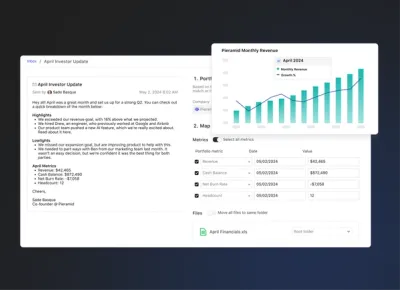
In an era where the effects of climate change are being felt more acutely every day, the need for bold, innovative solutions has never been greater. Climate tech startups are at the forefront of this revolution, creating technologies that address some of the world’s most pressing environmental challenges. These leading climate startups are not only pushing the boundaries of sustainable innovation but also reshaping industries by offering practical, scalable solutions to reduce carbon footprints and foster environmental resilience.
From carbon capture technology to renewable energy storage and sustainable agriculture, these companies are addressing critical issues head-on. This article highlights 15 innovative climate tech companies that are making significant strides in combating climate change. Whether they are developing groundbreaking technologies for cleaner energy or devising new ways to sequester carbon, these startups represent the future of green innovation.
Related Resource: Leveraging Innovation and Sustainability: A Guide for Clean Tech and Climate Tech Founders
Emerging Climate Tech Trends Impacting Startups in 2024
As climate tech evolves, several trends are directly shaping the trajectory of climate tech companies and their ability to address environmental challenges. These trends reflect not just advancements in technology but also the shifting demands within the industry, influencing how startups scale, secure funding, and innovate. Below are the key trends influencing climate tech companies in 2024.
Carbon Capture and Sequestration Technologies
Carbon capture and sequestration (CCS) is rapidly becoming a core focus for many climate tech startups, particularly those aiming to reduce industrial carbon footprints. Startups working on direct air capture (DAC) technologies are gaining significant traction as industries and governments seek scalable solutions to meet global emissions reduction goals. As funding for CCS increases, companies within this space are seeing more opportunities for partnerships with heavy industries like oil and gas, cement, and steel. However, the cost of these technologies remains a challenge, pushing climate tech companies to innovate in ways that make CCS more affordable and efficient for widespread adoption.
Long-Duration Energy Storage
The transition to renewable energy is pushing climate tech companies to develop long-duration energy storage solutions that go beyond traditional battery technology. Energy storage startups are now at the forefront of enabling a renewable energy grid that can handle fluctuations in solar and wind energy. This trend is driving significant investment into companies creating vanadium redox flow batteries, iron-air batteries, and other next-gen storage solutions. For these startups, the ability to secure contracts with energy utilities and prove the scalability of their technology will be key to future success. The demand for reliable energy storage is expected to grow exponentially as more countries mandate higher percentages of renewable energy in their grids.
Sustainable Agriculture and Food Tech
Climate tech companies focused on sustainable agriculture are seeing rising interest from both investors and governments as the agriculture sector faces mounting pressure to reduce emissions. Startups developing technologies like vertical farming, precision agriculture, and agroforestry are helping traditional farms and food producers become more resilient to climate risks. For example, companies offering precision agriculture solutions can optimize water usage and reduce chemical inputs, making farming more sustainable. This trend is particularly relevant for climate tech startups targeting regions prone to droughts and extreme weather, as their solutions offer tangible ways to mitigate the effects of climate change on food production.
AI-Driven Environmental Insights
The integration of AI into climate tech is transforming how companies gather and leverage environmental data, offering them a competitive edge in developing smarter, more targeted solutions. Startups providing AI-driven platforms that analyze climate risks, predict environmental shifts, and optimize resource use are seeing increased demand from sectors like renewable energy, real estate, and agriculture. For climate tech companies, this trend offers a unique opportunity to position themselves as data-driven innovators, capable of helping businesses and governments adapt to changing environmental conditions. Companies specializing in geospatial AI are especially well-positioned to attract funding as they provide essential insights for industries looking to mitigate environmental risks.
Key Challenges Facing Climate Tech Startups
While the climate tech sector is thriving, climate tech startups face several significant challenges that can hinder growth and scalability. From securing adequate funding to navigating complex regulatory landscapes, these barriers are unique to companies striving to create sustainable solutions. Below are some of the climate startup challenges that founders need to consider as they work toward building impactful, scalable businesses.
High Research and Development (R&D) Costs
One of the primary barriers for climate tech companies is the high cost of research and development. Unlike many software startups that can iterate quickly and cost-effectively, climate tech solutions often require significant investment in hardware, materials, and testing facilities. Whether developing new carbon capture technologies or refining energy storage systems, climate startups need extensive capital to move from concept to commercialization. This financial hurdle can slow down progress, particularly for startups without access to substantial early-stage funding or grant support.
Navigating Regulatory Challenges
Regulatory hurdles are another critical challenge for climate tech startups. Governments and regulatory bodies are increasingly enacting policies aimed at reducing carbon emissions, but the path to compliance can be complex. Startups must navigate a patchwork of regulations, often varying by region and industry. For example, renewable energy companies may face permitting delays, while those in carbon capture or waste management might contend with strict environmental standards. This regulatory uncertainty can deter investors and slow down the deployment of new technologies, making it a significant barrier to success.
Scaling Across Sectors
Climate tech solutions often require cross-sector partnerships to scale effectively. A company developing energy storage technology, for example, may need to partner with both energy utilities and hardware manufacturers to bring its product to market. Likewise, startups focusing on sustainable agriculture might need collaborations with large-scale farming operations or governments to deploy their technologies at scale. Establishing these partnerships can be difficult for early-stage startups, especially those without a proven track record or established industry relationships. The need for coordination across sectors and industries is a major challenge that climate startups must overcome to ensure long-term success.
Related resource: Top 10 VCs Fueling Innovation in Transportation
Securing Sufficient Funding
While investor interest in climate tech is growing, many climate startups still struggle to secure sufficient funding, particularly during the early stages. Venture capital firms often look for quick returns, but many climate tech solutions require long timelines before reaching commercialization. Startups in this space may also face competition from other sectors for investor attention. The need to demonstrate both environmental and financial impact adds another layer of complexity when raising capital. As a result, climate tech startups often need to explore alternative funding sources such as government grants, impact investors, and green bonds to bridge the gap.
15 Climate Tech Startups to Watch in 2024
1. CarbonCapture
CarbonCapture stands out in the climate tech sector with its innovative approach to direct air capture (DAC) technology. The company's systems, which use molecular sieves and renewable energy sources, are designed for adaptability. These machines not only remove CO2 from the atmosphere but also capture clean water distilled from the air, a dual functionality that enhances both environmental and practical value. The potential impact of this technology is substantial, offering a scalable and efficient solution to reduce atmospheric CO2 levels. This approach is particularly promising in the fight against global warming and climate change.
- Year founded: 2019
- Location: Pasadena, California
- Funding amount/type: The company has raised a total of $35 million over three funding rounds.
- Funding series: The most recent, a Series A round completed in September 2023.
- Major investors: Climate Pledge Fund, Ethos Family Office, Rio Tinto, Idealab Studio, Idealab X, and Marc Benioff’s TIME Ventures.
2. Astraea
Astraea is a significant player in the climate tech sector, particularly with its innovative use of data analytics for environmental insights. The company has developed an AI platform for geospatial data, which includes products like EarthAI Site and EarthAI Enterprise. These tools offer vital insights using imagery, analytics, and dashboards, catering to a variety of industries such as real estate, renewable energy, conservation finance, and agriculture. Astraea's EarthAI platform is particularly notable for its ability to aid in understanding climate patterns and their impacts, leveraging AI and geospatial data to provide actionable insights.
- Year Founded: 2016
- Location: Charlottesville, Virginia, USA
- Funding Amount/Type: Astraea has raised a total of $16.5 million over four funding rounds. In a recent development, the company raised $6.5 million in Series A funding.
- Funding Series: The latest funding, completed on July 21, 2022, was a Series A round.
- Major Investors: The Series A funding was co-led by Aligned Climate Capital and Carbon Drawdown Collective, with other participants including CAV Angels, Tydall Investment Partners, and the University of Virginia Seed Fund.
Astraea's role in climate tech is particularly exciting due to its innovative use of AI and satellite data to provide critical environmental insights. This approach is essential for addressing complex climate challenges, enabling better decision-making and strategy formulation in various sectors. The support and funding received from notable investors reflect confidence in Astraea's potential to make a meaningful impact in the field of climate technology.
3. CellCube
CellCube, known for its innovative energy storage solutions, is making significant strides in the field of climate tech with its focus on vanadium redox flow batteries (VRFBs). As a leader in sustainable, future-proof, and durable energy storage infrastructure, CellCube has emerged as one of the first and largest developers, manufacturers, and sellers of VRFBs globally. Their modular CellCube batteries are designed to store large electricity capacities efficiently for 4 to 24 hours, meeting the highest safety standards and boasting a lifecycle of 20 to 30 years. This technology is crucial for enabling the storage of energy from intermittent renewable sources like solar and wind, thus facilitating their integration into the energy grid and enhancing the sustainability of energy systems.
CellCube, initially known as Enerox, has evolved over the last ten years from a specialized product developer to a leading provider of comprehensive energy storage solutions. With more than 140 systems installed worldwide, they have established themselves as a key player in the industry.
- Year Founded: Not explicitly stated, but with 20 years of research and development, it suggests a founding date around 2002-2003.
- Location: Denver, Colorado, USA.
- Funding Amount/Type: The company arranged a non-brokered private placement financing for gross proceeds of CDN $10 million.
- Major Investors: Bushveld Minerals increased its investment in CellCube to 27.6%, as part of its energy storage business strategy.
CellCube's significance in the climate tech field is highlighted by its role in enhancing renewable energy integration. Their VRFBs provide a reliable and scalable solution for energy storage, addressing one of the most significant challenges in the shift towards renewable energy sources. By enabling more efficient storage and use of renewable energy, CellCube contributes significantly to reducing reliance on fossil fuels and combating climate change. Their progress and the growing investor interest underscore the critical role of energy storage technologies in achieving a sustainable future.
4. Jackery
Jackery, a leader in the field of portable solar power solutions, was founded in 2012 in California, USA, by a former Apple battery engineer. The company is recognized for its innovative approach in developing portable solar power generators, solar panels, and other related products. Jackery's mission is to provide green energy solutions that are accessible to everyone, everywhere, particularly focusing on outdoor and emergency use scenarios. Their products, known for their efficiency and accessibility, cater to the needs of those requiring mobile power sources, whether off-grid or during power outages.
- Year Founded: 2012
- Location: Fremont, California, USA
- Funding information isn’t given for Jackery
Jackery's innovation in portable solar power solutions is particularly exciting for the field of climate tech due to its contribution to sustainable energy accessibility. By providing efficient, portable solar generators and panels, Jackery plays a crucial role in enhancing the adoption of renewable energy sources. This is especially important in remote or disaster-prone areas where traditional power sources are unavailable or unreliable. Jackery's commitment to developing green energy solutions aligns with global efforts to reduce carbon emissions and mitigate the impacts of climate change. Their growth and the success of their products in the market underscore the increasing demand for portable and sustainable energy solutions.
5. CarbonCure
CarbonCure, a pioneer in carbon sequestration within the concrete industry, has garnered significant attention for its innovative approach to reducing carbon footprints. Founded in 2011 by Robert Niven and headquartered in Halifax, Nova Scotia, CarbonCure's technology revolves around the injection of captured carbon dioxide into concrete, where it is permanently stored. This process not only utilizes CO2 but also enhances the strength of the concrete, presenting a dual benefit.
The implications of CarbonCure's technology for the construction industry are profound. As concrete is one of the most widely used materials in construction, its production is also one of the largest sources of CO2 emissions globally. By integrating CarbonCure's technology, the construction industry can significantly reduce its carbon footprint, contributing to the global efforts against climate change. This technology offers a practical and scalable solution for carbon sequestration, aligning with the industry's growing focus on sustainability.
- Year Founded: 2011
- Location: Halifax, Nova Scotia, Canada
- Funding Amount/Type: CarbonCure Technologies has raised a total of $97.36 million over 12 funding rounds, with the latest being a Series F round for $80 million on July 11, 2023.
- Major Investors: The company's investors include Sustainable Development Technology Canada, Innovacorp, GreenSoil Investments, Pangaea Ventures, Breakthrough Energy Ventures, Microsoft Climate Innovation Fund, BDC Capital, 2150, Mitsubishi Corporation, Carbon Direct, Taronga Ventures, and Amazon's Climate Pledge Fund.
CarbonCure's technology is particularly exciting in the climate tech field due to its practical application in a widespread and traditionally high-emission industry. The ability to reduce the carbon footprint of concrete production and use while improving the material's quality represents a significant advancement in green construction practices. The company's successful funding rounds and the backing of major investors underscore the industry's recognition of the importance of sustainable solutions like CarbonCure's, indicating a promising future for this technology in global efforts to combat climate change.
6. Form Energy
Form Energy, a Massachusetts-based technology company founded in 2017, is revolutionizing the field of climate tech with its advancements in long-duration energy storage systems. These systems are designed to enable a reliable and fully renewable electric grid year-round, addressing one of the major challenges in the transition to renewable energy. Form Energy's technology is crucial for maintaining grid stability and integrating renewable energy sources, as it allows for the storage and release of energy over extended periods, thus balancing supply and demand even when renewable sources are intermittent.
- Year Founded: 2017
- Location: Boston, Massachusetts, US
- Funding Amount/Type: Form Energy has raised a significant amount of funding, with a $450 million Series E financing round announced in October 2022. This adds to their total funding, which had previously exceeded $350 million, reaching a valuation of $1.2 billion in mid-2021.
- Funding Series: The latest funding round was a Series E round.
- Major Investors: The Series E round was led by TPG’s global impact investing platform, TPG Rise, and included major investors such as GIC, Canada Pension Plan Investment Board (CPP Investments), ArcelorMittal, Bill Gates’ Breakthrough Energy Ventures, and others.
Form Energy's long-duration energy storage technology is particularly exciting in the climate tech sector for its potential to transform how energy grids operate. By allowing for the storage of energy for days, rather than hours, this technology enables a more seamless integration of renewable energy sources like solar and wind, which are often variable in nature. This capability is crucial for reducing reliance on fossil fuels and achieving a more sustainable and resilient energy infrastructure.
The company's focus on developing cost-effective and scalable energy storage solutions aligns with the growing global need for innovations that can support a fully renewable energy grid. The significant investment and support from major investors underscore the industry's recognition of the importance of long-duration energy storage and Form Energy's role in driving forward the transition to a cleaner, more sustainable energy future.
7. Klima
Klima, a mobile application developed by Climate Labs GmbH, is revolutionizing the field of climate tech with its unique approach to personal carbon offsetting. Founded in 2019 by serial entrepreneurs Markus Gilles, Andreas Pursian-Ehrlich, and Jonas Brandau, Klima is headquartered in Berlin, Germany. The app's mission is to turn carbon neutrality into a mass movement, unleashing the power of individual action at scale. Klima allows users to measure, reduce, and offset their carbon footprint directly through the app, empowering individuals to contribute actively to climate change mitigation efforts.
- Year Founded: 2019
- Location: Berlin, Germany
- Funding Amount/Type: Klima has raised a total of €15.8 million over three funding rounds, with the latest funding being raised on April 21, 2022, from a Series A round. The total funding amount is also reported as $18 million in another source, with a Series A round of $11 million raised on April 1, 2022.
- Funding Series: The latest funding round was a Series A round.
- Major Investors: Klima's investors include Christian Reber (co-founder and CEO of Pitch), Jens Begemann, Niklas Jansen (co-founder and managing director of Blinkist), e.ventures, HV Holtzbrinck Ventures, 468 Capital, HV Capital, Keen Venture Partners, Headline, and Blue Impact Ventures.
Klima’s approach to climate change mitigation is particularly exciting in the field of climate tech because it emphasizes the impact of individual actions. By enabling users to track and offset their carbon footprint through everyday activities, Klima is making climate action accessible and actionable for the broader public. This approach not only raises awareness about personal environmental impacts but also provides a tangible way for individuals to contribute to global carbon reduction efforts.
The startup's success in raising significant funding and attracting major investors reflects the growing interest in solutions that empower individuals to participate in climate action. Klima's innovative use of technology to facilitate personal carbon offsetting marks a significant step forward in engaging the public in climate change mitigation and underscores the potential for technology to play a transformative role in addressing environmental challenges.
8. Polarium
Polarium, founded in 2014, is a Swedish company that has established itself as a key player in the lithium battery technology sector. The company focuses on providing smart lithium batteries designed to address power backup challenges in various sectors, including telecom, commercial, and industrial. Polarium's mission is to empower a sustainable world with innovative solutions for energy storage and energy optimization built on lithium-ion technology.
- Year Founded: 2014
- Location: Sweden
- Funding Amount/Type: Polarium has raised a total of $273.9 million over 7 funding rounds. Another source reports the total funding as $250.19 million over 8 rounds.
- Funding Series: The latest funding was a Venture - Series Unknown round raised on September 4, 2023.
- Major Investors: The Swedish pension company Alecta, Formica Capital, Absolute Unlisted (part of the investment manager Coeli), AMF, Vargas, Roosgruppen, and Beijer Invest are among the key investors in Polarium.
Polarium's innovations in lithium battery technology are significant for various reasons. First, these batteries offer a sustainable and efficient solution for energy storage and management, vital in sectors ranging from telecommunications to industrial applications. Second, Polarium's technology plays a critical role in the integration and optimization of renewable energy sources, contributing to the transition towards more sustainable energy systems.
The startup is particularly exciting in the field of climate tech due to its focus on lithium-ion technology, which is crucial for the development of more efficient and sustainable energy storage solutions. This technology is essential for the scalability and effectiveness of renewable energy systems, as it allows for more efficient storage and distribution of energy generated from renewable sources.
Polarium's success in raising significant funding and attracting major investors highlights the growing interest and demand for advanced energy storage solutions. Their contribution to the development of smart lithium battery technology positions them as a key innovator in the climate tech sector, driving forward the transition to a more sustainable and renewable energy future.
9. Infarm
Infarm, a Berlin-based startup founded in 2013, is at the forefront of urban and vertical farming technologies. Their approach focuses on distributing "modular farms" to urban locations, promoting sustainable and local food production. Infarm's technology enables the growth of crops in a controlled, indoor environment, utilizing less space and resources compared to traditional farming methods. This innovative approach contributes to reducing the carbon footprint of food production and transportation by enabling local cultivation in urban settings.
- Year Founded: 2013
- Location: Berlin, Germany
- Funding Amount/Type: Infarm has raised over $600 million in total funding. A significant part of this, $200 million, was raised in a Series D round led by the Qatar Investment Authority (QIA).
- Funding Series: The latest funding round was a Series D round.
- Major Investors: The Qatar Investment Authority (QIA) is a notable investor, among others.
Infarm’s urban farming and vertical farming technologies are particularly exciting in the climate tech field for several reasons. Firstly, their systems require significantly less water and land than conventional agriculture, making them a sustainable alternative for food production. Secondly, by localizing food production, they reduce the need for long-distance transportation, further decreasing the environmental impact. Lastly, the ability to control growing conditions leads to less waste and higher quality produce.
The startup's innovative approach to farming addresses crucial environmental challenges, such as land use, water scarcity, and the carbon footprint of the agricultural sector. Infarm's success in attracting significant funding and major investors underscores the growing importance of sustainable food production solutions in the fight against climate change. Their technology represents a significant step forward in creating more sustainable, efficient, and localized food systems, making them a key player in the climate tech sector.
10. Northvolt
Northvolt, a startup based in Stockholm, Sweden, was founded in 2015 and is spearheading innovations in sustainable battery production for electric vehicles. Their focus is on creating batteries with low-carbon manufacturing processes, contributing significantly to the field of climate tech.
- Year Founded: 2015
- Location: Stockholm, Sweden
- Funding Amount/Type: Northvolt has secured investments totaling over $1 billion, including significant contributions from BMW Group, Volkswagen Group, Goldman Sachs, and Folksam.
- Funding Series: Major funding rounds include a $1.6 billion loan from a consortium and a $1.2 billion fundraising effort in 2023.
- Major Investors: Investors include BMW Group, Volkswagen Group, Goldman Sachs, and Folksam.
Northvolt's role in sustainable battery production and commitment to low-carbon processes make it an exciting startup in the climate tech sector. Their innovative approach addresses critical challenges in the automotive industry, reducing the environmental impact of electric vehicle batteries. The significant funding and support from major investors underline the importance of Northvolt's mission in the global transition towards sustainable energy solutions. Their expansion into North America with a new battery plant in Canada further solidifies their position as a leader in the field.
11. Propagate
Propagate, established in 2017, is revolutionizing the agricultural sector with its unique ecosystem that blends software, development, and financing. This innovative platform simplifies the process for farms to shift to agroforestry. By offering a comprehensive suite of services including agronomic insights, technical assistance, and financing options, Propagate ensures that farms can seamlessly integrate fruit, nut, and timber trees into their existing animal or crop farming systems. This approach effectively minimizes risks and supports a smoother transition.
- Year Founded: 2017
- Location: Denver, CO
- Funding Amount/Type: Funding Series: Series A with a total of $11.5 million raised.
- Major Investors: The Nest, Agfunder, TELUS Pollinator Fund for Good, The Grantham Foundation, Techstars and Elemental
Propagate's role in the climate tech field is significant, considering the growing need for sustainable agricultural practices. By focusing on agroforestry, they provide a viable solution to the challenges of food security, land degradation, and climate change, positioning themselves as a key player in the industry.
The core of Propagate's mission is to facilitate the adoption of regenerative agriculture practices, particularly agroforestry. This method involves incorporating permanent crops into farming, leading to enhanced profitability for farms. More importantly, it plays a crucial role in climate stewardship. By adopting these practices, farms not only boost their economic viability but also contribute significantly to climate solutions, showcasing Propagate's pivotal role in promoting sustainable and environmentally friendly farming methods.
12. BeZero
BeZero, founded in 2020 by Matthias Herbert and Tobias Frech in London, UK, is revolutionizing the carbon market with its carbon credit rating system. They've raised over $70 million, with a notable $50 million in a Series B round led by Quantum Energy Partners, and have attracted investments from EDF Group, Hitachi Ventures, and Intercontinental Exchange, among others
- Year Founded: 2020
- Location: London, England, United Kingdom
- Funding Amount/Type: BeZero Carbon has raised more than $70 million to date. In a significant funding round, the company secured $50 million in a Series B round, marking it as one of the biggest raises in the UK climate tech sector for the year.
- Funding Series: The latest funding was a Series B round.
- Major Investors: The Series B funding round was led by US-based Quantum Energy Partners, with strategic investments from EDF Group through EDF Pulse Ventures, Hitachi Ventures, and Intercontinental Exchange (ICE). Other investors include Molten Ventures, Norrsken VC, Illuminate Financial, Qima, and Contrarian Ventures.
BeZero aims to enhance transparency and efficiency in the Voluntary Carbon Market, crucial for achieving Net Zero targets. Their approach, supported by a team of experts, is significant in the climate tech sector, addressing the need for reliable information in the growing market, valued at approximately €50 billion by 2030.
13. ChargerHelp!
ChargerHelp!, founded in January 2020 by Kameale C. Terry and Evette Ellis in Los Angeles, California, is a dynamic startup in the electric vehicle (EV) industry. The company specializes in operations, maintenance, and workforce development for EV charging infrastructure.
- Year Founded: January 2020
- Location: Los Angeles, California, United States
- Funding Amount/Type: ChargerHelp! has raised $17.5 million in Series A financing. This funding round was led by Blue Bear Capital, with significant investments from Aligned Climate Capital, Exelon Corporation, and other investors like Energy Impact Partners and non sibi ventures.
- Funding Series: The most recent funding was a Series A round.
- Major Investors: Major investors include Blue Bear Capital, Aligned Climate Capital, Exelon Corporation, Energy Impact Partners, and non sibi ventures.
ChargerHelp! is not directly related to BeZero’s carbon credit rating system. However, in the broader context of climate tech, ChargerHelp! is contributing significantly by ensuring the reliability and efficiency of EV charging stations. Their focus is on improving the operational functionality of these stations, which is essential for the growing number of EV users and is pivotal in the transition to sustainable transportation. By addressing the technical and operational challenges of EV infrastructure, ChargerHelp! is helping to accelerate the adoption of electric vehicles, thereby reducing carbon emissions and advancing climate goals.
14. Sylvera
Sylvera, established in 2020 by Samuel Gill and Dr. Allister Furey in London, UK, is a trailblazer in the climate tech industry. It specializes in providing a carbon offset intelligence platform, enhancing transparency and insights in the carbon market.
- Year Founded: 2020
- Location: London, UK
- Funding Amount/Type: Sylvera has raised a total of $39.5 million. This includes a $32 million Series A round, led by Index Ventures and Insight Partners, with participation from Salesforce Ventures, LocalGlobe, and other angel investors.
- Funding Series: The latest funding was a Series A round.
- Major Investors: Key investors include Index Ventures, Insight Partners, Salesforce Ventures, LocalGlobe, and several angel investors.
Sylvera's platform stands out in the climate tech field for its robust approach to analyzing carbon offset projects using machine learning and diverse data sources like satellite imagery. This enhances accountability and credibility in carbon offsetting, addressing the challenges of asymmetric information and transparency. Their contribution is vital in a market projected to be worth $100 billion by 2030, making Sylvera an essential player in achieving net-zero targets through improved carbon market practices.
15. ZeroAvia
ZeroAvia, founded in 2017 by Valery Miftakhov, is a U.S.-based company focused on developing hydrogen-fueled aviation technology. They are at the forefront of reducing aviation's carbon footprint, which is pivotal for the climate tech field.
- Year Founded: 2017
- Location: United States
- Funding Amount/Type: ZeroAvia has raised significant funding over the years, including $21.4 million in Series A financing in 2020, $24.3 million in a second round of Series A in 2021, $35 million in Series B financing also in 2021, and a substantial round in 2023 with Airbus as a lead investor.
- Funding Series: The company has completed Series A and B funding rounds.
- Major Investors: Notable investors include Breakthrough Energy Ventures, Ecosystem Integrity Fund, Horizons Ventures, Royal Dutch Shell, Amazon's Climate Pledge Fund, British Airways, United Airlines Ventures, Alaska Air Group, Airbus, and Neom Investment Fund.
ZeroAvia's work in hydrogen-fueled aviation technology is transforming the industry. By developing powertrains for aircrafts that are zero-emission, they address a significant source of global carbon emissions. This breakthrough technology is not only crucial for the aviation industry's transition to sustainable practices but also represents a major advancement in the broader effort to combat climate change. The potential impact of ZeroAvia's technology in reducing aviation's carbon footprint makes them a particularly exciting and important player in the climate tech field.
10 Venture Capital Firms Investing in Climate Tech Startups
Securing funding is a crucial step for any climate tech startup aiming to scale its operations and bring innovative solutions to market. With growing investor interest in sustainable technologies, more venture capital firms are focusing on climate tech companies that address critical environmental challenges. For startups, finding the right investors can make all the difference in gaining not just financial support but also strategic guidance and industry connections.
Below is a list of 10 of the most active venture capital firms currently investing in climate tech, helping startups secure the resources they need to accelerate growth.
Related resource: Guide to CleanTech and Climate Tech in 2024 + Top VCs Investing
1. Breakthrough Energy Ventures

Backed by Bill Gates, Breakthrough Energy Ventures is one of the most influential players in climate tech, investing in early-stage companies focused on decarbonization. Their focus areas include energy storage, food and agriculture, and transportation.
Location: Kirkland, Washington
Investment Range: Seed to Series B
2. Lowercarbon Capital
Lowercarbon Capital is a venture capital firm focused exclusively on startups that are reducing carbon emissions. They invest in a wide range of sectors including carbon capture, energy storage, and clean energy technologies.
Location: San Francisco, California
Investment Range: Seed to Growth
3. Energy Impact Partners (EIP)
EIP partners with utilities and large energy consumers to invest in companies leading the transition to a clean energy future. Their portfolio includes startups working on grid modernization, electrification, and energy efficiency.
Location: New York, New York
Investment Range: Series A and beyond
4. Congruent Ventures
Congruent Ventures is a leading VC firm supporting early-stage companies at the intersection of sustainability and technology. They focus on areas like clean energy, transportation, and resource efficiency.
Location: San Francisco, California
Investment Range: Seed to Series B
5. Fifth Wall
Fifth Wall is a prominent investor in climate tech startups focused on sustainable real estate and infrastructure. They invest in companies addressing the decarbonization of the built environment, including energy efficiency, electrification, and carbon sequestration.
Location: Los Angeles, California
Investment Range: Seed to Series C
6. Prelude Ventures
Prelude Ventures invests in early-stage climate tech startups working across various sectors, including energy, agriculture, and transportation. They have a long-term investment horizon and prioritize companies with breakthrough technologies.
Location: San Francisco, California
Investment Range: Seed to Series B
7. Chrysalix Venture Capital

Chrysalix focuses on climate tech startups developing technologies for resource efficiency and industrial innovation. They work with companies that are bringing advanced materials, clean energy, and digitalization technologies to market.
Location: Vancouver, Canada
Investment Range: Series A to Growth
8. Obvious Ventures
Obvious Ventures invests in startups that are building solutions for a healthier planet. They focus on climate tech sectors like clean energy, circular economy, and sustainable food systems.Location: San Francisco, CaliforniaInvestment Range: Seed to Series C, and Growth
9. Elemental Excelerator
Elemental Excelerator is a global climate tech accelerator that invests in startups addressing energy, water, agriculture, and circular economy challenges. Their unique model combines investment with hands-on support to help companies scale.
Location: Honolulu, Hawaii
Investment Range: Seed to Series A
10. Schematic Ventures
Schematic Ventures is a seed-stage venture capital firm investing in supply chain, logistics, and sustainability. Their climate tech investments focus on decarbonizing industrial processes and logistics through technology innovation.
Location: San Francisco, California
Investment Range: Seed Stage
Find an Investor for Climate Tech with Visible
Visible helps founders connect with investors using our connect investor database, find VCs specifically investing in Climate Tech here.
Related resource: 10+ Founder Friendly Venture Capital Firms Investing in Startups
Related resource: 11 Venture Capital Podcasts You Need to Check Out
For Climate Tech startups, securing the right investors is critical as it goes beyond mere funding. These investors bring specialized expertise and strategic insights specific to the Climate sector and their guidance is invaluable in navigating the unique challenges and opportunities within the space.
Use Visible to manage every part of your fundraising funnel with investor updates, fundraising pipelines, pitch deck sharing, and data rooms.
Raise capital, update investors, and engage your team from a single platform. Try Visible free for 14 days.




